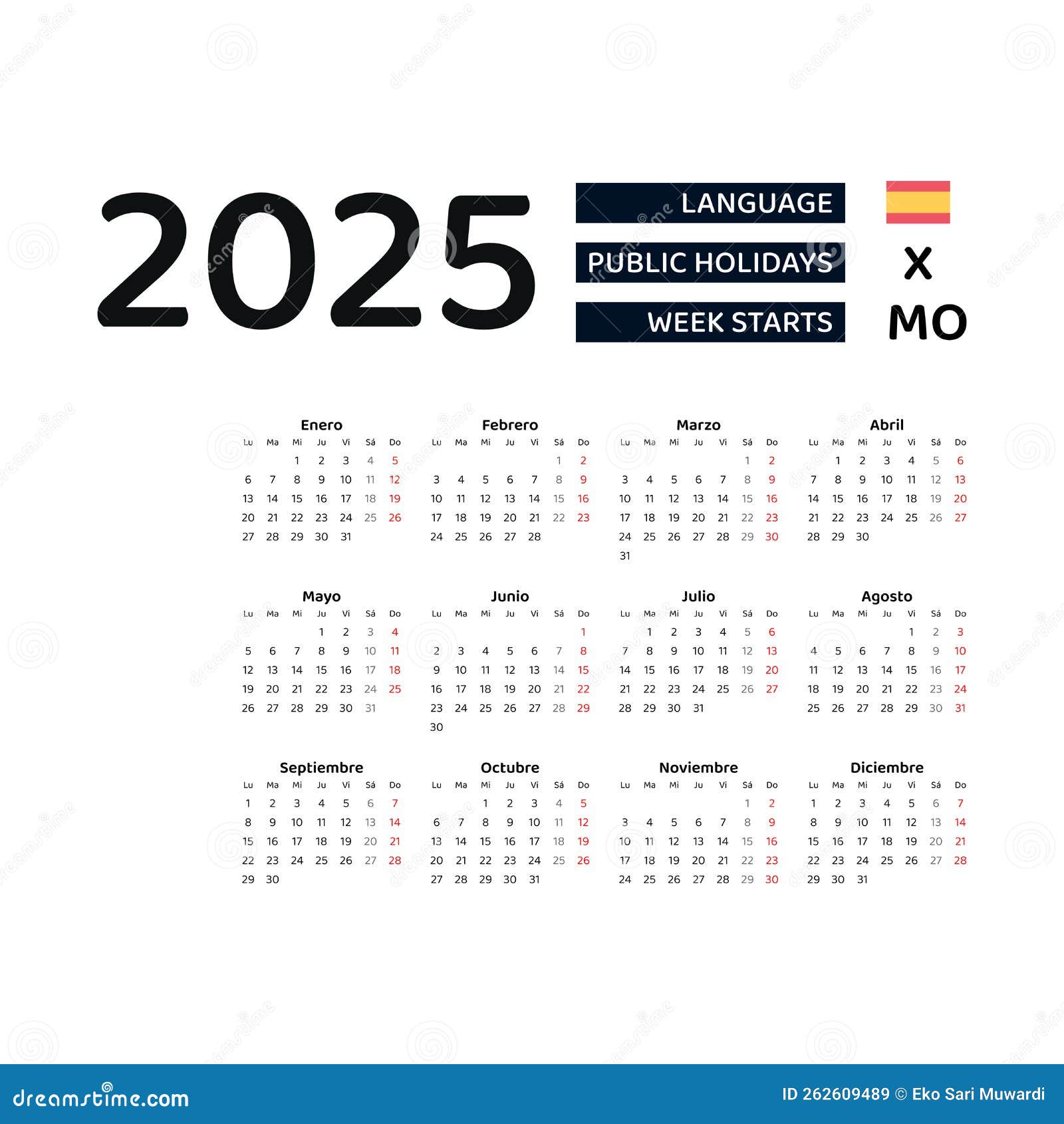Navigating Spain’s Public Holidays in 2025: A Comprehensive Guide
Related Articles: Navigating Spain’s Public Holidays in 2025: A Comprehensive Guide
Introduction
In this auspicious occasion, we are delighted to delve into the intriguing topic related to Navigating Spain’s Public Holidays in 2025: A Comprehensive Guide. Let’s weave interesting information and offer fresh perspectives to the readers.
Table of Content
Navigating Spain’s Public Holidays in 2025: A Comprehensive Guide

Spain, with its rich culture and vibrant traditions, observes a generous number of public holidays throughout the year. These holidays, deeply intertwined with the country’s history and religious heritage, provide opportunities for celebration, reflection, and relaxation. Understanding these holidays is crucial for anyone planning to visit or live in Spain, as they can significantly impact business operations, travel plans, and daily life.
This comprehensive guide provides a detailed overview of Spain’s public holidays in 2025, outlining their significance, observance, and potential implications.
Understanding Spain’s Public Holiday System
Spain’s public holidays are governed by the Ley Orgánica 7/1982, de 5 de mayo, de Estatuto de Autonomía para Andalucía (Organic Law 7/1982, of May 5, on the Statute of Autonomy for Andalusia), and the Real Decreto 1890/2000, de 20 de diciembre, por el que se regula el calendario laboral de días festivos nacionales (Royal Decree 1890/2000, of December 20, regulating the work calendar of national holidays). These legal frameworks establish a core set of national holidays observed across the country, along with regional holidays specific to each autonomous community.
National Holidays in Spain 2025
The following national holidays are observed throughout Spain in 2025:
- New Year’s Day (January 1st): Marking the beginning of a new year, this holiday is a time for family gatherings and celebrations.
- Epiphany (January 6th): This Christian holiday commemorates the arrival of the Three Wise Men to see the baby Jesus. It is a popular occasion for children to receive gifts and enjoy traditional sweets.
- Good Friday (March 28th): This day marks the crucifixion of Jesus Christ and is a solemn holiday observed with religious ceremonies and processions.
- Easter Monday (March 31st): This holiday falls on the Monday following Easter Sunday and is often a time for family outings and picnics.
- Labour Day (May 1st): This international holiday celebrates workers and their contributions to society.
- Constitution Day (December 6th): This day marks the anniversary of the approval of the Spanish Constitution in 1978, symbolizing the country’s transition to democracy.
- Immaculate Conception (December 8th): This religious holiday commemorates the conception of the Virgin Mary without original sin.
- Christmas Day (December 25th): This holiday celebrates the birth of Jesus Christ and is a time for family gatherings, gift-giving, and festive meals.
Regional Holidays in Spain 2025
Each of Spain’s 17 autonomous communities has the authority to establish its own set of regional holidays. These holidays often celebrate local traditions, historical events, or religious figures specific to the region. While the exact dates of these holidays may vary, they typically fall on weekdays or weekends, complementing the national holiday calendar.
Important Considerations for Public Holidays
- Bank Holidays: Most national and regional holidays are also bank holidays, meaning that banks and financial institutions are closed.
- Business Closures: Many businesses, particularly shops and restaurants, may close during public holidays, especially on national holidays. It is advisable to check opening hours beforehand.
- Travel: Public holidays can significantly impact travel plans, with increased demand for flights, trains, and accommodations. Booking in advance is highly recommended.
- Public Transportation: Public transportation services, including buses, trains, and metros, may operate on reduced schedules or be completely suspended during public holidays.
- Cultural Events: Many cities and towns in Spain host special cultural events and celebrations during public holidays, offering unique experiences for visitors.
FAQs Regarding Spain’s Public Holidays in 2025
1. Are all public holidays in Spain non-working days?
While most national and regional holidays are non-working days, some exceptions may apply. Certain businesses, such as hospitals and emergency services, may continue to operate during public holidays. It is always best to confirm with individual businesses or organizations regarding their specific operating hours.
2. What happens if a public holiday falls on a weekend?
If a public holiday falls on a Saturday or Sunday, it is typically not replaced with another day off. However, some regions may have specific regulations regarding holiday replacements.
3. Are there any additional holidays specific to certain regions?
Yes, some regions in Spain celebrate additional holidays specific to their local traditions or historical events. For example, Catalonia celebrates Sant Jordi (St. George’s Day) on April 23rd, a day dedicated to love, literature, and roses.
4. How can I find out more about specific regional holidays?
The official websites of each autonomous community provide detailed information about their regional holidays and celebrations.
5. What are some tips for planning a trip to Spain during public holidays?
- Book accommodation and transportation in advance: Public holidays often see increased demand, so booking ahead is essential to secure availability and avoid higher prices.
- Check business hours: Many shops and restaurants may have altered opening hours or be closed altogether during public holidays.
- Be aware of potential crowds: Popular tourist destinations may experience larger crowds during public holidays, so plan accordingly.
- Embrace the local culture: Public holidays are an excellent opportunity to experience local traditions and celebrations.
Conclusion
Understanding Spain’s public holidays is essential for anyone planning to visit or live in the country. From national celebrations to regional festivities, these holidays offer a glimpse into Spain’s rich culture and heritage. By being aware of the holiday calendar and its implications, travelers and residents can make informed decisions about their travel plans, business operations, and daily life, ensuring a smooth and enjoyable experience.








Closure
Thus, we hope this article has provided valuable insights into Navigating Spain’s Public Holidays in 2025: A Comprehensive Guide. We appreciate your attention to our article. See you in our next article!